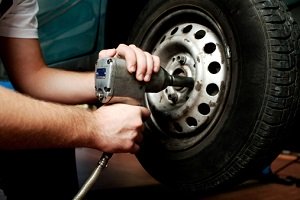Through proper care and treatment of tires, serious or fatal accidents caused by blowouts are highly preventable if proper precautions are taken. Because tire blowouts can develop from many situations, drivers should strive to be aware of tire conditions and schedule professional check-ups accordingly. This is especially true during transitional weather periods. Take particular care to examine tire conditions as quickly changing temperatures can cause weak tires to fail.
Thank you for reading this post, don't forget to subscribe!Use these helpful tips in combination with careful driving habits to avoid blowouts and improve vehicle safety for all drivers on the road. Knowing all signs and symptoms of possibly weakening tires is vital. Tire blowouts are considered to be any random or sudden deflation of a tire during regular vehicular use. Results of said tire blowouts are sometimes serious or even fatal, thus proper measures should be taken to ensure safety and to make sure tires are capable of regular use.
One of the most common causes of tire blowouts is underinflation and driving with underinflated tires over long periods of time. Ignoring underinflation is one of the easiest ways to completely ruin a tire or cause an unnecessary blowout. With improper tire pressure, internal mechanisms such as steel, rubber and other components are easily pushed beyond their limits and will eventually result in tire blowout or the need for tire replacement. Tire pressure naturally decreases over time resulting in subtle pressure loss, no matter what driving conditions a vehicle experiences. At the least, check tire pressure monthly to protect driving conditions and ensure tires are not overworked by poor maintenance and low air pressure.
Keep in mind, while tires can be properly maintained, careful driving habits should still be practiced to avoid blowouts and maintain tire health. Erratic driving or distress from hitting excessive bumps or potholes is equally as harmful to tires as improper maintenance. Hitting obstacles at high speeds can damage or cut through fabric and rubber causing irreversible damage that weakens tire stability, potentially causing a blowout.
Avoid overloading your vehicle, as tires are built to sustain certain amounts of weight and can easily fail even if tire conditions are perfect. Be aware of tire limitations and vehicle weight limit capacities. When traveling with heavy loads, seek instructions about tire restrictions and air pressure guides to ensure all safety precautions to protect the vehicle and tires are taken.
If tire malfunction or failure is suspected, do not continue regular operations of the vehicle. Tire blowouts are incredibly dangerous and should be avoided at all costs. Use these tips to prolong tire life and safety along with scheduling regular check-ups to maintain professional care.


